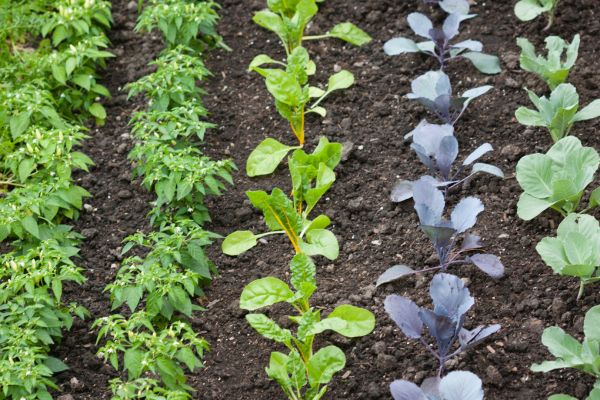Starting a garden filled with aromatic and flavorful herbs is one of the most rewarding hobbies you can take up. Herb gardening for beginners may seem daunting at first, but with a little guidance and enthusiasm, anyone can cultivate a thriving herb garden right at home. Whether you have a sprawling backyard or just a sunny windowsill, you can grow herbs that will enhance your cooking and bring life to your living space.
Why Choose Herb Gardening as a Beginner?
For those new to gardening, herbs are the perfect place to start. They are generally hardy, require minimal maintenance, and offer quick results. Many herbs are adaptable to various growing conditions, which makes them forgiving for beginners. Additionally, herb gardening allows you to enjoy fresh flavors in your meals while saving money at the grocery store.
Selecting the Right Location for Your Herb Garden
The success of your herb garden begins with choosing the right location. Most herbs thrive in full sunlight, needing at least six hours of direct light each day. If you have outdoor space, a garden bed or raised planter in a sunny spot is ideal. For indoor gardening, a south-facing window can provide ample sunlight. If natural light is limited, consider using grow lights to supplement and ensure healthy growth.
Choosing Herbs for Beginners to Grow
When starting your journey into herb gardening for beginners, selecting the right plants is crucial. Popular choices like basil, mint, rosemary, thyme, parsley, and chives are excellent for beginners because they grow quickly and are highly versatile in the kitchen. Each herb has unique characteristics, but most share similar basic care requirements, which simplifies the process for novices.
Soil Preparation and Planting
Good soil is the foundation of any successful garden. Herbs prefer well-drained soil rich in organic matter. If you are planting in containers, use a high-quality potting mix rather than garden soil to ensure proper drainage and nutrient content. For outdoor beds, enriching the soil with compost before planting can boost fertility and improve texture. Once your soil is ready, plant your chosen herbs carefully, giving each enough space to grow and spread.
Watering and Feeding Your Herbs
Maintaining the right watering schedule is vital. While herbs generally prefer slightly dry soil to being waterlogged, consistent moisture is still essential. Check the soil regularly by touching it; if the top inch feels dry, it’s time to water. Overwatering is one of the most common mistakes beginners make, so aim for moderation. For feeding, herbs are not heavy feeders, but a light application of an organic fertilizer every few weeks can promote lush, healthy growth.
Caring for Your Growing Herb Garden
As your herbs grow, regular care will keep them thriving. Pruning and harvesting are not just for enjoying your herbs; they also encourage bushier growth. Snip leaves and stems often to prevent the plants from becoming leggy or flowering too early, which can reduce the flavor of some herbs. Keep an eye out for pests or diseases, and address any issues promptly using natural solutions whenever possible.
Harvesting and Using Your Herbs
One of the most satisfying aspects of herb gardening for beginners is harvesting your fresh herbs. The best time to harvest is in the morning when the essential oils are most concentrated, giving you maximum flavor and aroma. Use sharp scissors or garden shears to cut what you need, taking care not to remove more than one-third of the plant at a time to ensure continued healthy growth.
Troubleshooting Common Challenges
Even with the best care, beginners may encounter challenges. Yellowing leaves can indicate overwatering or poor drainage. Slow growth might result from insufficient sunlight or depleted nutrients. If pests appear, such as aphids or spider mites, try using insecticidal soap or introducing beneficial insects like ladybugs to your garden. Learning to observe and respond to your plants’ needs is part of the joy of herb gardening.
Expanding Your Herb Garden Over Time
Once you gain confidence, you can expand your herb garden to include more exotic varieties or experiment with different growing methods such as hydroponics or vertical gardening. Companion planting with vegetables or flowers can also add diversity and help with pest control naturally.
Enjoying the Fruits of Your Labor
The beauty of herb gardening lies not just in the cultivation process but also in the enjoyment of using your harvest. Fresh herbs can elevate everyday dishes, infuse oils or vinegars, and even be used for making teas and natural remedies. The satisfaction of creating meals flavored with herbs you grew yourself is unmatched.
Conclusion: Embark on Your Herb Gardening Journey Today
Herb gardening for beginners is more than a hobby; it is a gateway to a healthier, more sustainable lifestyle. By following simple steps and nurturing your plants with care, you can create a thriving garden that brings beauty, fragrance, and flavor into your home. Whether you’re growing basil on your windowsill or cultivating a lush outdoor bed, the rewards of herb gardening are within your reach. Start today and watch as your green thumb flourishes.







